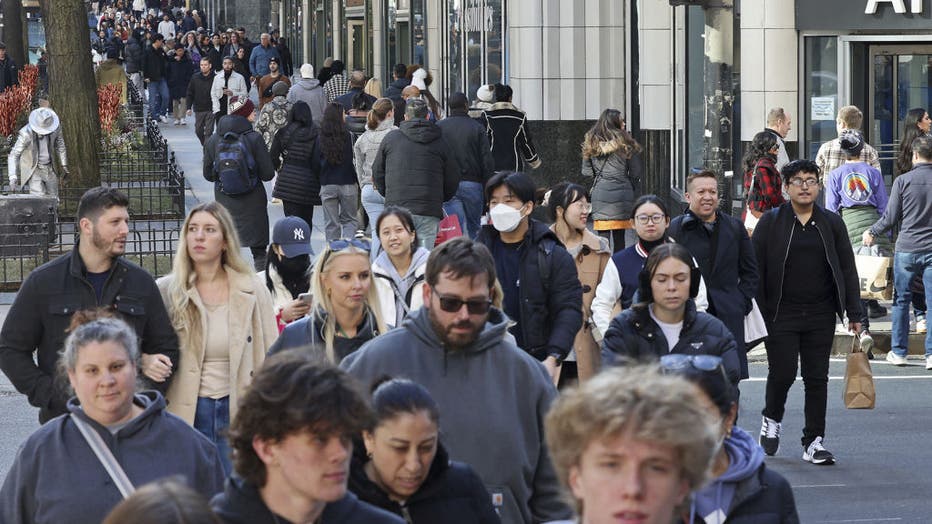Financial disparities in Cook County are almost double national average, study finds

Financial disparities in Cook County are almost double national average, study finds
Financial disparities that exist across race nationally are amplified in Cook County, according to a new study released Tuesday.
COOK COUNTY, Ill. - Financial disparities that exist across race nationally are amplified in Cook County, according to a new study released Tuesday.
The study by the Financial Health Network and the Chicago Community Trust found that Black and Latino residents are three to four times more likely to be financially vulnerable — unable to save and pay bills — as their white counterparts. And that disparities persist even among those earning $100,000.
The disparities found in the study are almost double the national average, where around 20% of Black and Latino Americans are likely to be financially vulnerable, compared with 12% of whites.
The study was conducted by researchers from the Financial Health Network, a financial research organization based in Chicago, who surveyed 5,422 Cook County residents, examining how individuals spend, save and borrow. The national rates were based on the organization’s national surveys.
The Chicago Community Trust, a community foundation that aims to close the racial wealth gap in Cook County, funded the study.
"There’s a lot of national data available on the financial disparities that exist, but we saw nothing specific to Chicago," said Nina Alcacio, the group’s director of communications. "We wanted to have a base in order to shape our strategy for closing these gaps."
SUBSCRIBE TO FOX 32 ON YOUTUBE
The findings the group was most concerned with were how rates of financial vulnerability in Cook County outpace the national average and how financial vulnerability doesn’t just affect low-income earners.
Among those with household incomes of $100,000, only 40% of Black and 44% of Latino residents are considered financially healthy — able to easily save — compared with 69% of white and 62% of Asian residents.
"Even when they had ‘made it,’ they’re still in a bind because they’re helping out family members," Alcacio said.

People walk past stores in the 500 block of North Michigan Avenue in Chicago on Nov. 25, 2022. (John J. Kim/Chicago Tribune/Tribune News Service via Getty Images)
The study found that these financial disparities mirrored the city’s racial geography, with nearly 33% of residents on the heavily Black and Latino South and West sides being considered financially vulnerable as opposed to half of North Side residents being considered financially healthy.
For many Black and Latino residents, the hardships of being financially vulnerable include around half of survey participants reporting that they are unable to pay all of their bills on time and about four in 10 reporting that they experienced food insecurity over the past year.
"These findings are a wake-up call," Andrea Sáenz, president and chief executive of the Chicago Community Trust was quoted as saying in a release. "We must act with urgency to change this trajectory, which will improve the lives of thousands of families and create a brighter future for our region."
Michael Loria is a staff reporter at the Chicago Sun-Times via Report for America, a not-for-profit journalism program that aims to bolster the paper’s coverage of communities on the South Side and West Side.

